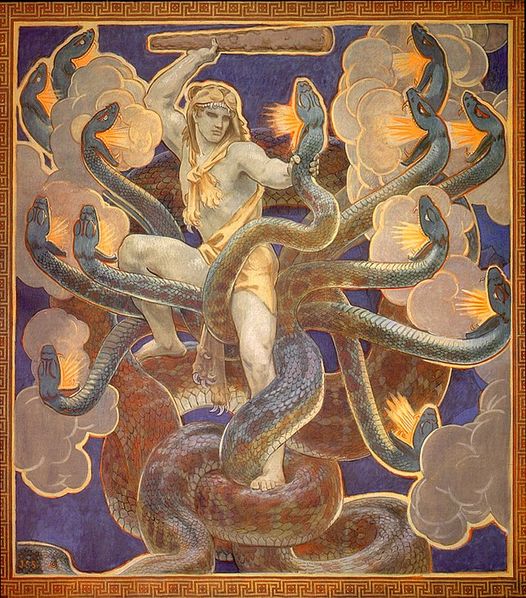This is a deep one but it shows how the Bible interacts with the rest of the cultures in the Ancient Near East. The word myth gets used several times but please understand that there is no intent to claim the Bible falls into our modern understanding of mythology. Instead, it shows how the Holy Spirit inspired the Biblical writers to correct the surrounding nations over what they believed was their heritage and legacy of greatness.
In many ancient civilizations of the Near East, myths recounting ancient times and events share striking similarities, despite their differences. A notable example is the concept of a demigod or hero, exemplified by the likes of Hercules, Perseus, and Achilles in Greek mythology. These heroes, born of one human and one divine parent, were revered as exceptional leaders of their time. Comparable figures can be found in other cultures, such as the Sumerian Gilgamesh and the Egyptian pharaohs.
The Book of Genesis presents a twist on this theme. In Genesis 6, powerful beings from the Heavenly Host defied divine law by mating with human women. Far from being celebrated, their offspring, the Nephilim, were malevolent and tyrannical. These beings and their celestial parents rebelled against God, ultimately facing dire consequences. As a result of the Nephilim’s violence and the corrupt knowledge passed down from their divine progenitors (an event that became the basis for the Greek myth of Prometheus), the Earth was left in such a state of chaos that God felt compelled to cleanse it with the Great Flood, sparing only Noah and his family. As for the members of the Heavenly Host that rebelled, they were sentenced to be chained in the lowest and worst part of Sheol until the Day of the Lord (the angels chained in gloomy darkness in Jude 1:6).
The story continues in the Old Testament, particularly during Israel’s entry into Canaan. Some Nephilim persisted in the form of giant tribes and formidable warriors like Goliath. It was David, chosen by God, and his band of warriors who ultimately vanquished the last of the giants, thereby ending the Nephilim’s reign.
But the Nephilim’s influence did not end with their physical demise. As beings that were neither entirely human nor divine, their spirits transformed into the demons that feature prominently in the New Testament. Christ and His Disciples and later Apostles, much like David before him, sought to eradicate the threat posed by these malevolent beings, born from an ancient rebellion against God.
Discussion Questions:
- How do the Nephilim in the Book of Genesis challenge or subvert the traditional concept of demigods or heroes found in other ancient Near Eastern mythologies? What might this say about the cultural and religious differences between these civilizations?
- What parallels can be drawn between David’s quest to eliminate the Giants and Christ’s mission to eradicate demonic possession in the New Testament? How do these narratives reflect the larger themes of good versus evil and divine intervention in human affairs?
- In what ways does the story of the Nephilim and their transformation into demons serve as a cautionary tale about the consequences of defying divine authority and the misuse of power? How might this narrative have been used to convey moral lessons or influence the behavior of people in ancient societies?
